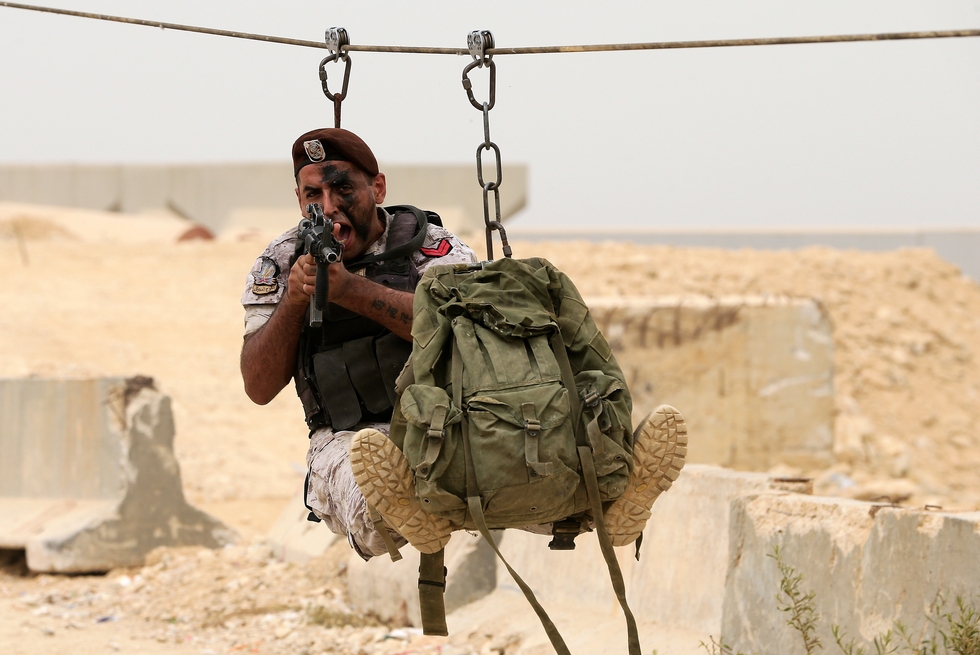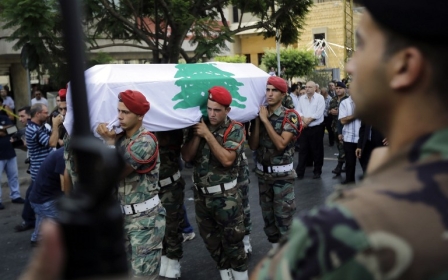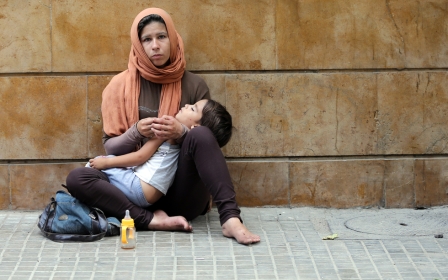Unpoetic justice: Brutal revenge for a murdered son is Lebanon's tragedy

If history has taught us anything, it is that man's ability to repurpose and utilise violence unfortunately has no limits. A crime perpetrated in Lebanon a few days ago is a case in point. The father of one of the slain Lebanese army soldiers abducted by al-Nusra in the town of Arsal in August 2014, east of Lebanon, opted to avenge his son’s brutal execution with a similar, not to say more primordial act of violence.
Maaruf Hamieh in a coldblooded and sarcastic manner, phoned a local television station and bragged that he had carried out the vow he uttered when his son was murdered, to avenge him at any cost. Hamieh’s crime however did not target any Nusra member but rather Hussain Hujeiri, whose uncle, a local Sunni cleric, had ties to the jihadi group operating in the Arsal outback.
Hamieh’s textbook tribal revenge included abducting the 20-year-old victim and executing him over the grave of his son. While tribal justice is not that uncommon in that region of the country nor in other regions, the timing and the nature of the crime once again places both the decaying Lebanese state as well as its so-called citizens under the moral scrutiny of the public at large.
While the families of both, the victim and the executioner, share many common traits and are tribal in essence, the fact that they stand opposite to each other along the Sunni-Shia divide exacerbates an already volatile sectarian reality.
While the inhabitants of Arsal have supported the Syrian revolution since its outset, the Hamieh clan, like the majority of their Shia co-religionists, sided with Hezbollah in its so-called war against terrorism across the border.
The battle of Arsal in August 2014 between the Lebanese Army and the jihadi Syrian militias ended with the capture of 24 soldiers and 20 policemen by al-Nusra and the Islamic State. Among the POWs was Hamieh's son, Mohammad, who was later executed by al-Nusra, which wanted to use this act to demand Hezbollah’s withdrawal from Syria, but more importantly to show the Lebanese government it meant business.
The Lebanese government, weak as it is, engaged in a long and arduous negotiation process with al-Nusra through one of its main security chiefs. Major General Abbas Ibrahim shuttled between the local and regional powers involved which included Qatar, Saudi Arabia, Syria and Iran. Thirteen month later, this would yield the release of 16 servicemen and the bodies of the two soldiers killed in captivity. While this release was naturally received with jubilation by the general public, the killing of Hamieh's son laid the grounds for the brutal murder of Hussain Hujeiri two years later.
Throughout the hostage crisis, the Lebanese government surrendered what remained of its sovereignty and respect. This was mainly due to the fact that the paralysis of the cabinet and the continued failure of the Lebanese parliament to elect a president to the republic turned the government into mere spectator, forced to accept any settlement no matter how degrading.
The return of the abducted soldiers did not bring any real justice to the families of those who were killed in combat or in captivity but further empowered the notion that violence and killing can reap rewards. Along these lines the father of Mohammad Hamieh opted to carry out his crime.
Up until now, the Lebanese government has not issued an official statement regarding the crime nor has it done anything to apprehend the perpetrators. Ironically, Maaruf Hamieh’s whereabouts are known. He sits in his village home sporting military fatigues and continues to receive people and tribal delegations that fully support “his fight against terrorism”.
Even the various political parties that usually never miss a chance to crowd the pulpits and the news with their rhetoric have abstained from saying anything meaningful. While the Future Movement, the representative of the Sunni majority, did issue a statement condemning the crime, it didn’t amount to anything of substance nor did it carry any real weight with the parties involved.
Equally horrific is the attitude of some, not to say the majority, of the Lebanese who looked at this crime as a natural progression of events and that tribal justice was a norm rather than an anomaly. This shouldn’t be of any surprise as the recent municipal elections across the country reflected this tribal proclivity of the Lebanese voters who preferred to vote for their kinsmen even if the latter were incompetent to hold office.
Lebanon's other political parties are equally responsible for this tribal reality. Instead of building modern and inclusive political parties that embrace individuals from across the sectarian spectrum, these groups, lacking in vision, choose to exploit these tribal inclination rather than abolish them.
Any elections are definitely a good sign when they are aimed at allowing people to pick their representatives for local or national government. However the Lebanese have yet again failed at playing by the rules of the game. The sheer fact that the Lebanese want to live in a modern state but still practice their tribalism at the ballot boxes or in other ways is perhaps ironic. Maruf Hamieh in this respect is a point in case.
When Mohammad Maaruf Hamieh decided to join the Lebanese army in 2013, he theoretically, along with his family, should have shed his tribal cloth and willingly endorsed the rule of law and whatever comes with it. His short career and his subsequent martyrdom should have been viewed within this context and his memory should have been honoured by the helpless state. Instead Hamieh's family decided to disrespect the uniform that their son proudly wore by carrying out their antiquated crime.
The main problem, I believe is not in the way tribal justice was dispensed nor by the manner that the Lebanese state has failed to address this challenge. The Hamiehs, just like all of the Lebanese, have to decide to live as a clan and bare the responsibilities that come with this decision, or opt to live under the patronage of the Lebanese state, despite all of its shortcomings. A vegetarian cannot lecture his family about eating meat and then sneak out at night and devour copious amounts of animal carcasses.
This delusional condition which the Lebanese consciously choose to live in will certainly lead to more tragedies, maybe more gruesome than the killing of Hussain Hujeiri. But we should always keep in mind that there is nothing poetic in poetic justice nor any honour in any kind of violence if we truly want to live in a modern state.
- Makram Rabah is a PhD candidate at Georgetown University’s history department. He is the author of “A Campus at War: Student Politics at the American University of Beirut, 1967–1975” and a regular columnist for Now Lebanon.
The views expressed in this article belong to the author and do not necessarily reflect the editorial policy of Middle East Eye.
Photo: A Lebanese Army Commando slides down a zip line as he demonstrates his skills during a security convention in Beirut on 9 September, 2015 (AFP).
New MEE newsletter: Jerusalem Dispatch
Sign up to get the latest insights and analysis on Israel-Palestine, alongside Turkey Unpacked and other MEE newsletters
Middle East Eye delivers independent and unrivalled coverage and analysis of the Middle East, North Africa and beyond. To learn more about republishing this content and the associated fees, please fill out this form. More about MEE can be found here.





